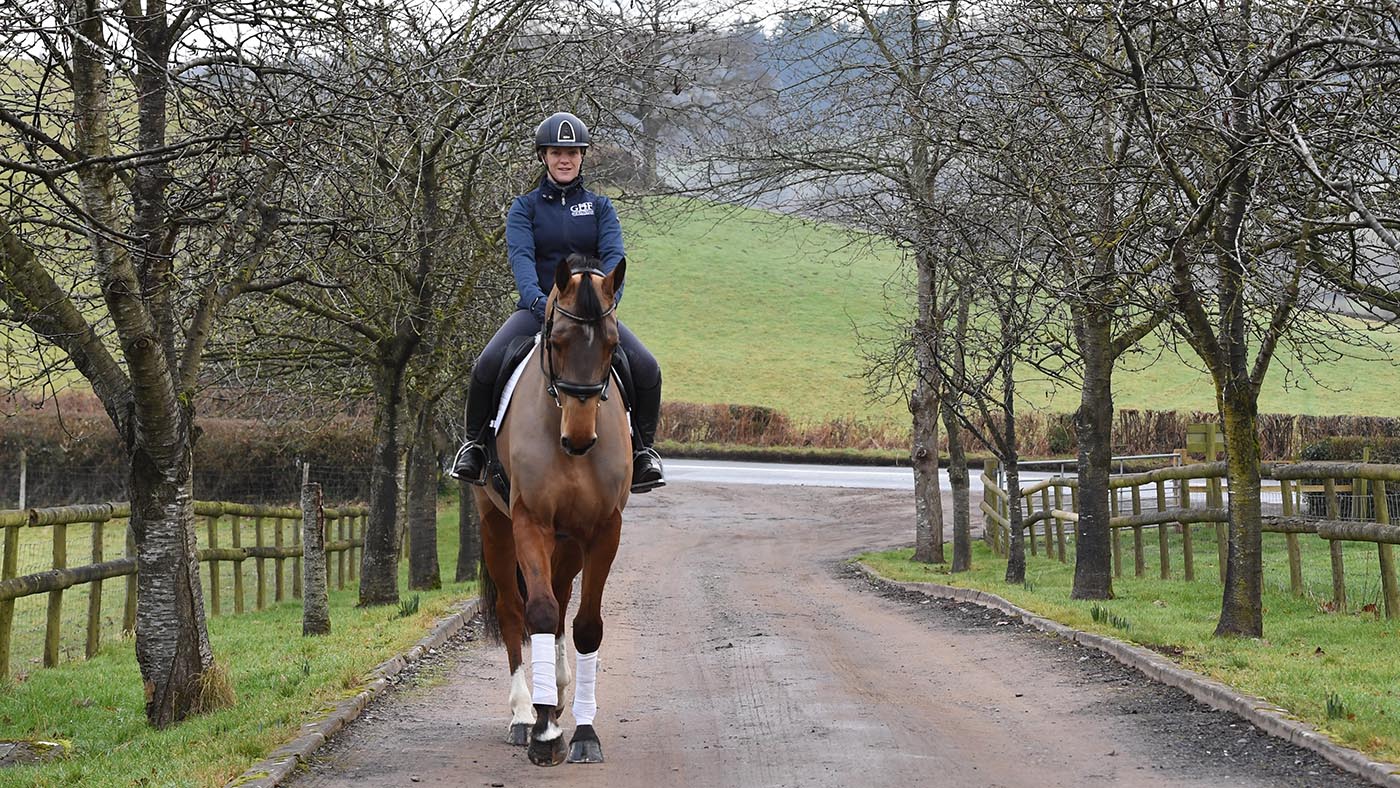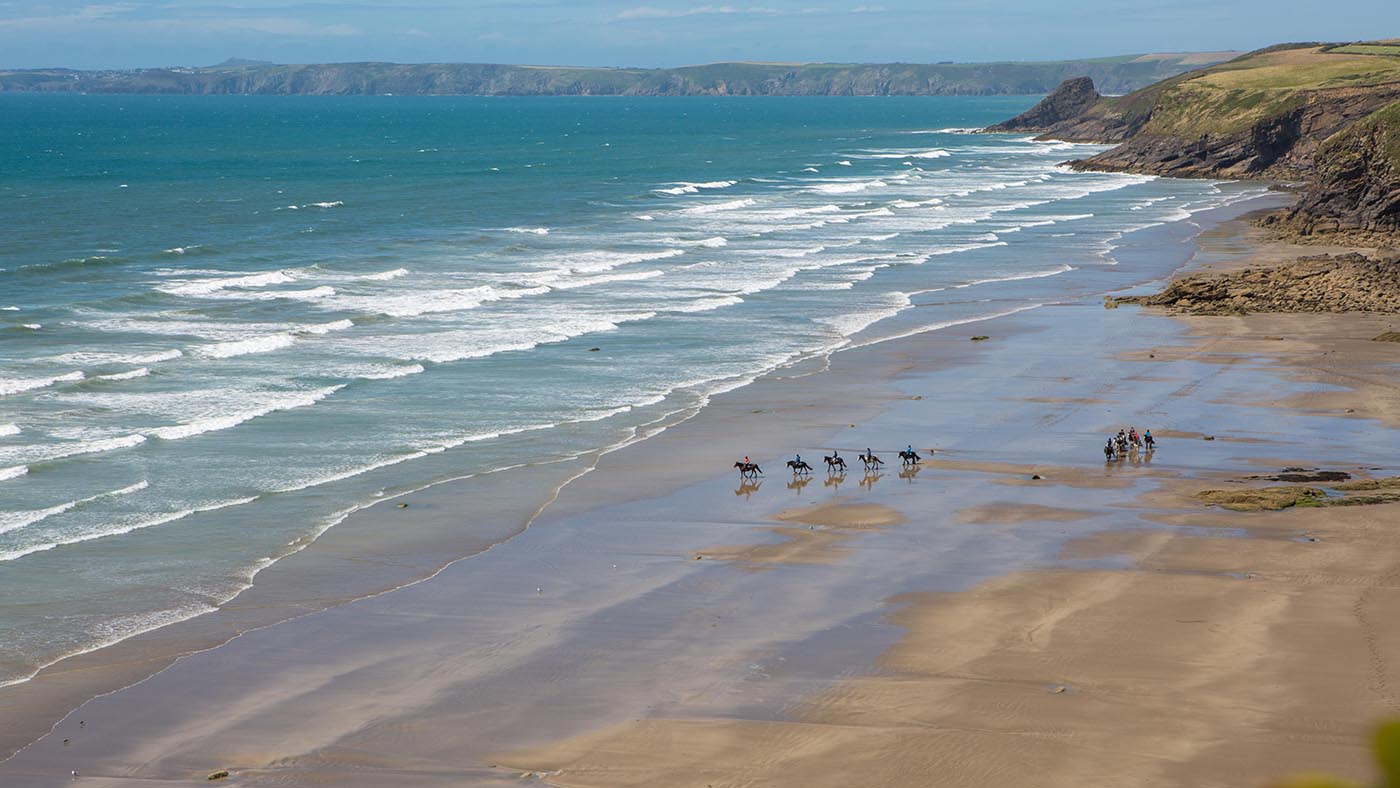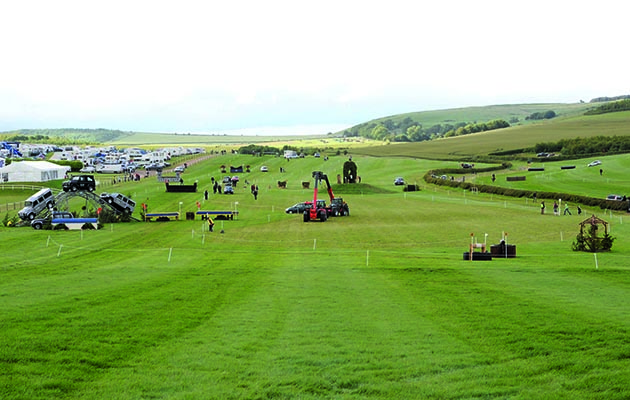Wales’ inaccessibility is part what makes it so fabulous, says Catherine Austen, delving into what makes the land of dragons an equestrian paradise
WALES. A country where sheep outnumber people by three to one. That’s an often-quoted and rather predictable statistic, but horsey people should be delighted by it. Sheep mean space; lush green valleys, bracken-covered hills, steep-sided mountains. Fewer people mean quieter roads, cheaper house and land prices, more room to move and breathe. Why so many sheep? The largely poor-quality soil means it is far better suited to livestock farming than arable – and it’s tricky to plough a mountain, of course.
Horses have always thrived in Wales. The Welsh Mountain Pony probably has its origins in a prehistoric Celtic pony, and the nature of the Welsh terrain and the poor grazing ensured it was a tough, hardy, footsure beast. Arab and probably thoroughbred blood added quality.
The four native types – sections A, B, C and D – retain these characteristics and pass them on when they are crossed with other breeds. The rural Welsh people, whose ancestors used their native ponies to go about their daily lives, feel strongly connected to them and love to celebrate them; witness the stallion classes at the Royal Welsh Show at Builth Wells. The passionate spectators stand 10-deep around the main ring and the loud cheers for their favourites echo round the surrounding hills.
In some ways, Wales is a horsey paradise. The hacking can’t be bettered, both in terms of what’s under your feet and what you are looking at while you’re doing it. There are beaches to gallop on, rolling hills to wander over, forests to explore. No wonder it’s an extremely popular choice for those who enjoy riding holidays, whether they want to go trekking or take their own horse.
Expect to travel to compete
THINGS aren’t quite so ideal if you want to compete – at a high level, anyway.
“You have to love driving!” admits former international showjumper Helen Evans, who lives near Fishguard in west Wales. “It’s such a beautiful place to live, but our nearest affiliated venue – Beacons Equestrian near Ammanford – is an hour and 20 minutes away. Pencoed College, which runs British Showjumping [BS] classes up to 1.30m, is two hours away, the other side of Bridgend.”
Badminton’s cross-country course-designer Eric Winter and his wife Lizzel – who is a much in-demand coach and a Fellow of the British Horse Society – run a riding school at their Severnvale EC near Chepstow, from where their son James competes and produces showjumpers.
“There is a lot going on at riding club level; it only becomes difficult when you want to do more than that,” says Eric.
The Winters are lucky to be near the David Broome Event Centre at Mount Ballan, however, which runs extremely popular multi-day showjumping shows that attract riders from all over the country.
“We do all our showjumping there, and it’s also a really good training facility,” says event rider Vicky Tuffs, adding that Ponderosa EC in Newport offers both British Dressage and BS classes, and has “a massive new surface”.

Vicky Tuffs riding Kogola at GHF Equestrian, located just outside Usk in Monmouthshire
Vicky and her business partner Andrew Williams run GHF Equestrian, producing and selling young event horses, just outside Usk in Monmouthshire.
“Undoubtedly the best thing for us about being in Wales is the mountains – we never have to go to the gallops,” she says. “We do all our fast work on them and the mossy ground is like a carpet all year round, even when it is bottomless or like concrete everywhere else. When I had a yard in Chippenham in Wiltshire for a couple of years, it was an hour’s hack to find a hill; that puts a lot of miles on horses’ legs, whereas it is so easy to get them fit while hacking here.”
Wales has traditionally been stronger in the areas of showjumping and showing – as well as the Royal Welsh, the smaller county shows are great – than in eventing and dressage. The number of affiliated dressage venues are increasing, but there are very few British Eventing venues left. The likes of Pembrey, Garth House, Llanover and Glanusk have come and gone – there was even an affiliated horse trials on the Royal Welsh Showground once upon a time. Monmouth, Howick and Llanymynech remain; all close to the English border.
“I’m resigned to the fact that our radius is four to five hours,” says Haverfordwest-based Amy Tough, who events up to four-star level. “My brother [Andrew James] now lives in Bedfordshire and is horrified if he has to travel for two hours to get to an event!”
Amy also does a lot of showing; she won the working hunter final at Horse of the Year Show (HOYS) twice with Colimbo Nimbus.
“You can’t really specialise over here; there aren’t the owners to do that,” she explains. “The showing is of a very good standard, though. There were at least 10 horses and ponies from Pembrokeshire at HOYS the last time I went, and if you are winning locally you know you are ready to go to one of the bigger qualifiers.
“The natural facilities available to us are great, and the competition facilities in Wales are slowly getting better, but we are still a fair way behind on that front. And while there used to be quite a few good hunter trials, they seem to have gone.”

Ynysymond EC near Swansea has a good cross-country schooling course and holds clinics with leading event riders, but Wales wouldn’t have the range and standard of cross-country schooling venues that you might expect.
The Welsh riding club scene is busy and successful, and Welsh Pony Club branch teams hold their own at championship level, particularly at tetrathlon. Mounted games is another strength, both at Pony Club and adult level.
Helen Evans, along with her husband and Heather Jenkins, organises showjumping competitions at Carmarthen College that include classes for schools.
“There has been terrific support for those, and they have gone on to do well nationally,” she says.
Out of the rat race
IT is worth remembering that, while Wales isn’t a very big country, it has quite separate parts to it. South Wales, mid-Wales, west Wales and north Wales are all fairly different and have varying strengths and weaknesses for horse-lovers.
The M4 means that it is no sweat for west Wales-based racehorse trainers like Peter Bowen and Rebecca Curtis to travel long distances to race meetings, and the A55 – the North Wales Expressway, running from Chester to Holyhead – is similarly useful.
Coach and former event rider Tuffy Tilley lives in St Asaph in Denbighshire, and the A55 certainly makes her life easier than it was when, aged 18, she set off with a car and trailer to compete at her first Burghley.
“Access has always been an issue,” she says. “Eventing from Wales is a challenge – our main training venue is Somerford, an hour and a half away. It’s lovely that we are a bit out of the rat-race, though.”
Tuffy points out that although there are good transport arteries in north and south Wales, they run east to west. Getting from north to south is rather more difficult: “It’s easier for us to get to London than Cardiff,” she says.

In between is a large and extraordinarily beautiful area of mountains, lakes and forestry, through which small roads wind themselves like tangled wool.
It might be more suitable for holidaying – try Paul Turner’s TransWales Trails, which offers “forward-going, well-schooled and sociable” Welsh cobs with whom to explore the Welsh mountains behind Paul, who goes like a dingbat – than it is for competition riders, but where there’s a will (and a willingness to spend money on diesel), there’s a way.
Hunting to suit all types
IF you want to go hunting in Wales, there are options to suit everyone.
You can jump big hedges with the Monmouthshire or the Flint and Denbigh, gallop across miles of well-drained hill country with barely a road in sight with any amount of mid-Wales packs, go beagling with the excellent Glyn Celyn on the Epynt between Builth and Brecon, admire the famous Welsh hounds of the Pembrokeshire or test your legs and your lungs by following the David Davies or the Snowden-based Eryri.
If you are more used to hunting with “more fashionable” packs in England, you won’t believe how cheap your cap will be – but don’t expect to stop for second horses.
Equine breeding isn’t confined to Welsh ponies and cobs. Dunraven Stud near Bridgend stands the Group One winners Ask and Mountain High, while the Hodge family breed Flat horses, board broodmares and provide a sales prepping service at Llety Farms in Nantgaredig, Carmarthenshire.
On the sport horse front, Gary Power has bred the CCI4* stallion PSH Promise Me and the Tattersalls CCI4*-L-winning mare PSH Gazelle at Newtown in Powys.
Wales has always been a hotbed of point-to-pointing, and top National Hunt trainer Evan Williams developed from those amateur roots.
“There was a time when Wales was the forgotten corner of Britain, but people have now grasped that it is a fantastic place to come to,” says Evan. “Whereas once perhaps they thought Wales was all slag heaps and coal tips, they now realise it is far from that; it is a green, open, gorgeous place.
“I find it easy to get great staff because there are so many really good horse people here, too.”
Eric Winter says: “Yes, you might have to travel a bit, but in many places in Wales people can buy a cottage and four or five acres of land and have their horses at home when they wouldn’t be able to afford that lifestyle anywhere else.”
There are pros and cons to living anywhere, of course. But if you are prepared to put in a little bit of effort, Wales has considerably more pros for horsey people than cons. And the air is sweeter than anywhere else.
.
This exclusive feature can also be read in H&H magazine, 25 March 2021 issue
You may also be interested in…

Bermuda-based sport horse travels more than 3,000 miles to retire in South Wales
“It’s amazing how quickly they settle in once they get here, we have other horses who have come from Dubai

50 ways to live your best horsey life
We thought we’d help steer you along the path to equestrian fulfilment with these 50 steps to living your best

Heaven in Devon: 10 reasons the county has been named Britain’s best for equestrians
Find out why Devon has been rated the best equestrian county in Britain

Sky lantern ban imposed by Welsh council
The RSPCA has welcomed the news that a 12th council in Wales has banned sky lanterns from being released on

5 reasons why Wiltshire is heaven for horse lovers (and it’s not just because Andrew Nicholson lives there)
We round up some of the best hotspots for horse lovers in the county — from the go-to tack shop,


